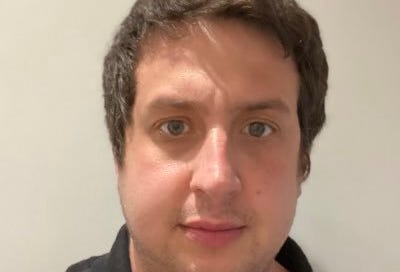Today we will welcome a special guest to present an investment thesis.
Maurício Rahmani, CFA
After interning at the investment fund Permal in New York and at Citibank in the areas of Equity Sales and Equity Research, Maurício became a partner at Mogno Capital, a company where he worked for four years as a stock analyst covering different market sectors.
Today, he is one of the analysts at Reach Capital, responsible for the Retail and Capital Goods sectors and has 12 years of experience as a stock analyst.
Maurício is a Business Administrator from FGV-SP and has CFA Certification.
The firm's main fund is Reach Total Return, which, in just over 7 years, from Jan/17 to Jun/24, generated a return of 223.88% in the period, while Ibovespa generated a return of just 99.99%.
Just over 2 months ago, Maurício and the Reach team launched a fund with the potential to generate even greater returns, Reach Small Caps BDR FIA, whose main position is Randon (RAPT4).
Let’s get to the thesis presented by our guest!
What is Randon?
Randon is a leading conglomerate in the production of road implements and controller of large auto parts companies for heavy vehicles and the automotive aftermarket, industrial technology and financial services (including a bank).
Randon has net revenue of R$11 billion, a market value of R$3 billion and has a net debt of R$2 billion. We expect an EBITDA of R$1.7 billion and a net profit of R$500 million for the year 2024, with growth in the coming periods.
The company has improved a lot in recent years!
If, on the one hand, the company is much cheaper than it was in the past, on the other, it is much better than it used to be.
Sérgio Carvalho, CEO of Randon since 2022 and Fras-le since 2017, has led a significant transformation. Under his management, Fras-le's shares multiplied 5 times, highlighting his ability in capital allocation and strategic acquisitions, such as Nakata and Fremax.
We believe that this great transformation is now happening in Randon's other subsidiaries.
Four themes stand out that we believe are the main ones in its management:
a) The technology:
Randon has invested significantly in technology. Examples include the creation of NIONE, which produces niobium nanoparticles with diverse applications; the development of the Electric Auxiliary Traction System (e-Sys), which transforms the set + implement into a hybrid vehicle; and the acquisition of Auttom and DBServer (industrial automation and software companies).
Under his management, Fras-le developed innovative composite materials that reduce the weight of parts by up to 65%, improving vehicle performance. The idea is that in a few years, we will have unique products with superior technology and protected by patents.
b) Transformation of the Implements Business (trailers):
The implements segment, historically the most problematic, is undergoing a significant transformation after a few difficult quarters. Highlights include the automation of assembly lines, which should reduce losses and labor costs, and the implementation of financial controls by business subline. Additionally, Randon is developing a modular trailer platform that allows for scalable customization of implements, resulting in a weight reduction of up to 1 ton, providing a significant competitive advantage.
c) Growth in Auto Parts:
The company has been expanding its most profitable businesses in the auto parts segment through several subsidiaries, gaining market share. Fras-le, making capacity increases, Suspensys with an exclusive contract with Mercedes worth 7 billion, and foundry acquisitions are some examples.
d) Internationalization:
Internationalization is a strategic priority to reduce the volatility of results in Brazil. The operation in the USA, represented by Hercules, offers a market five times larger than the Brazilian one and is just getting started. Suspensys has expanded its operations in Mexico and Fras-le is consolidating in Europe.
What has caused the stock to fall recently?
In addition to the widespread pessimism with Brazil, the increase in long interest rates, and rains in Rio Grande do Sul (which did not have a relevant impact on Randon's operations), the result for the first quarter of 2024 was weak, which contributed to the drop of actions.
This performance was influenced by changes in the ERP system, fewer working days, labor provisions and old backlog that had not been repriced. These factors combined resulted in a bad quarter, but we believe it was a one-off event.
What are the fundamentals for the second half of 2024 and 2025?
Overall, we should see a good improvement in the coming quarters, both due to the initiatives implemented and the end of non-recurring impacts. The prospects for verticals linked to auto parts are excellent. The resumption of truck production this year and the thriving replacement market should boost the segment.
Furthermore, the two new casting and shaft factories in Mogi-Guaçu have the potential to add 140 million reais to EBITDA per year. The smaller one will begin operating in the coming months and the larger one from next year.
Regarding implements, we see healthy data in the short term for the industry (ANFIR), despite the off-season period in a tougher environment. At the end of the year, the segment should take part in Fenatran – the biennial freight transport fair – which will take place in November. In any case, the implements vertical should continue to be subject to uncertainty due to the short-term challenges of the Brazilian agro sector. But, without a doubt, this sector should benefit in the medium/long term, which has great prospects.
Despite weaker results at the beginning of the year, Randon reiterated its guidance, showing confidence in the results. To meet its expectations, Randon's average revenue needs to be 15% higher in the coming months than in the first quarter, which would be excellent.
Is the company too cheap?






